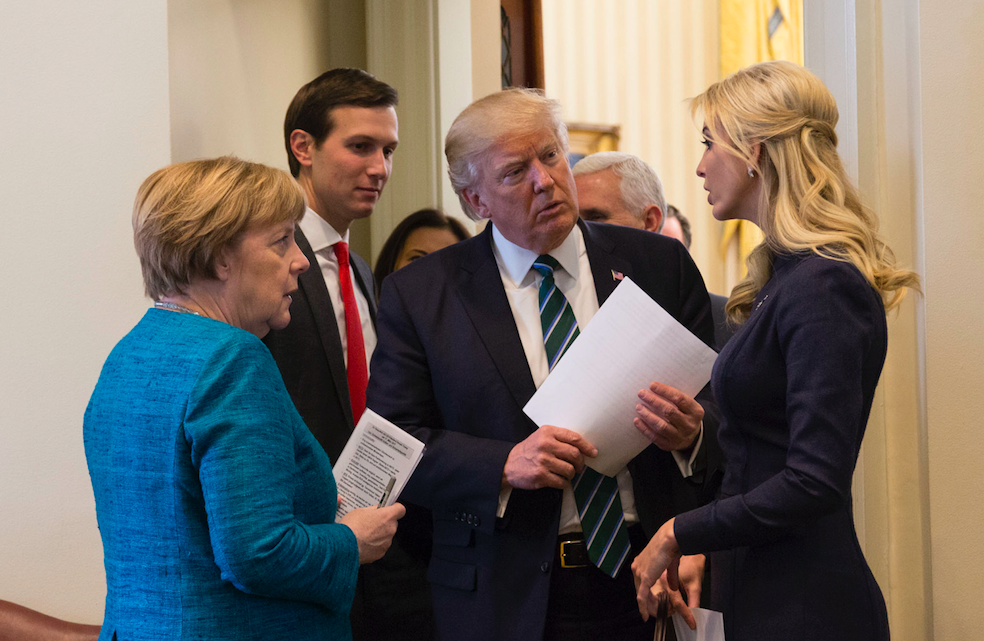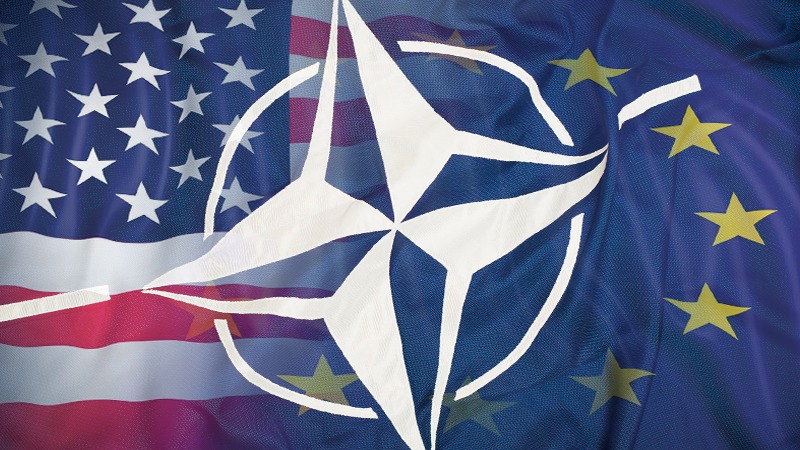“Even during the periods of alliance there has been a complicated state of simultaneous alliance and struggle. If we do not study the particular features of both aspects of the contradiction, we shall fail to understand not only the relations of each party with the other forces, but also the relations between the two parties.”
Mao Zedong, On Contradiction (1937)
The alliance between the US and Europe which formed after World War II and embodied in
the North Atlantic Treaty Agreement (NATO), has recently been cracking.
The division between the European Union (centered on Germany and France) and the US under Trump came to light through a mutual reproachment that ironically followed commemoration ceremonies for the 100th anniversary of World War I in Paris.
A CONTRADİCTİON AMONG ALLİES
There are two facets of this discrepancy:
The first relates to the Trump administration’s unconventional hostility toward Europe whereas the second includes the efforts of the Berlin-Paris bloc to become an independent power vis-a-vis the United States.
It is difficult to definitively state whether Trump’s policies are responsible for the divide, or whether the new independent line of Berlin-Paris axis forced Washington to alter its policies.

As Mao Zedong, the founder of modern China, put forth in his Four Essays on Philosophy, even forces within an alliance are often simultaneously engaged in struggle with one another. The discrepancy between the two legs of the Atlanticist system, the US and the German-French bloc, is a prime example of a contradiction between formally allied powers.
Understanding this contradiction has practical implications, as those engaged in struggle with the imperialist bloc can take steps aimed to deepen the contradictions and eventually force an internal fracture.
In this context, Russian President Vladimir Putin’s statement in favor of an independent European Army might be read as a deliberate step designed to deepen this contradiction between his opponents, being as the question has been at the center of recent reproachments between the US and the EU.
It is likely that the Russian policy of drawing Europe away from the US’ sphere of influence will gain momentum given recent developments.
THE CENTRIFUGAL EFFECT
French President Emmanuel Macron stated openly that, “We need to protect ourselves from China, Russian and even the United States within the limits of respect. (…) If President Trump withdraws from the great disarmament agreement which was formed after the missile crisis hit Europe in the 1980s, who is going to be the biggest victim of this act? Europe and the security of the continent.”

As these remarks indicate, the European Army project and the US’ decision to withdraw from the Intermediate-Range Nuclear Forces Treaty (INF) are related elements in the internal crisis of the Atlanticist block.
“Trump played his card. What was it? It was dividing the Europeans” said France’s former foreign policy minister Dominique de Villepin, pointing to the fact that Trump’s recent actions and statements against Europe are just the tip of the iceberg.
Taking Macron’s statements a step forward, Villepin openly avowed his dream of a Europe independent from the US dominance saying “I don’t believe that we have common interests with the US in Europe with regard to security and economics.”
In the wake of tension between Trump and Macron, Le Figaro, a prominent center-right newspaper, contributed to constructing an anti-US atmosphere in France by printing an article with the headline “How does the US spy on our corporations?” It is particularly remarkable that the newspaper’s source for its claim was the DGSE – France’s foreign intelligence agency.
Melenchon, a left-wing candidate whose popularity is rising swiftly, takes an explicitly anti-US and anti-NATO stance, saying that “Trump is the mirror of Europeans who voluntarily serve NATO.”
THE CONTRADICTIONS OF THE NEW WORLD
The question remains, how did France, recently considered to be the close ally of the US, end up with such a strong anti-US backlash?
If we accept the US as the center of contemporary geopolitics, it is evident that a strong centrifugal tendency has been developing; not just in Europe, but around the world. Even Saudi Arabia, often seen as a client state of the US, has now been put at odds with Washington.

This conflict among the imperialist powers is not the first of its kind. The US unhesitatingly targeted its own Cold War allies during the Suez Crisis in order to curb French and English influence in the Middle East.
The legendary Egyptian leader Nasser’s success was due in part to his masterful ability to exploit the contradictions between imperialist powers.
A new multipolar world is in birth, but we must keep in mind that it will come into being with its own set of contradictions.
I will leave the last words to Mao, who poignantly described this character of world-historical development: “What is meant by the emergence of a new process? The old unity with its constituent opposites yields to a new unity with its constituent opposites, whereupon a new process emerges to replace the old. The old process ends and the new one begins. The new process contains new contradictions and begins its own history of the development of contradictions.”









Leave a Reply